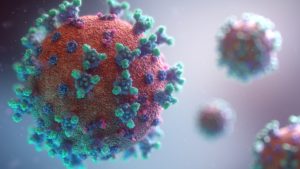COVID-19
Welcome!
The Secretariat of the Inter-American Committee on Ports (S/CIP) welcomes you to the COVID-19 best practices page for response protocols to ensure the proper functioning and business continuity of ports.
Bearing in mind the difficulties presented by the pandemic but recognizing the opportunity to develop guidelines for the response to health emergencies and other crisis, the S/CIP dedicates this page to gathering, promoting and disseminating successful practices and strategic actions implemented by our members in response to the current situation.
We are proud to be the only organization that has focused its efforts on responses from national port authorities in the hemisphere and we are confident that this compilation of recommendations and protocols/guidelines will benefit of the port community at the regional and hemispheric level.

COVID-19 Responses and Recommendations
Important Information
COCATRAM
 (May 12, 2020) The Central American Commission on Maritime Transport (COCATRAM for its acronym in Spanish) informed the Secretariat of the Inter-American Commission (S/CIP) about the results of the survey “Impact of COVID-19 on Port Operations in Central America and the Dominican Republic," carried out between April 16 and 29, 2020, which are representative of the situation and the impact of COVID-19 in the region. It was answered by 28 ports and terminals in Central America and the Dominican Republic–Guatemala, El Salvador , Honduras, Nicaragua, Costa Rica, Panama and the Dominican Republic. The sample represents 50% of the ports and terminals of foreign trade in the scope of the countries of the survey.
(May 12, 2020) The Central American Commission on Maritime Transport (COCATRAM for its acronym in Spanish) informed the Secretariat of the Inter-American Commission (S/CIP) about the results of the survey “Impact of COVID-19 on Port Operations in Central America and the Dominican Republic," carried out between April 16 and 29, 2020, which are representative of the situation and the impact of COVID-19 in the region. It was answered by 28 ports and terminals in Central America and the Dominican Republic–Guatemala, El Salvador , Honduras, Nicaragua, Costa Rica, Panama and the Dominican Republic. The sample represents 50% of the ports and terminals of foreign trade in the scope of the countries of the survey.
To access the survey results, click here.
To access the report of the second survey on COVID-19, click here.
European Maritime Safety Agency
(July 27, 2020) The European Maritime Safety Agency (EMSA) published the COVID-19: EU Guidance for Cruise Ship Operations. The EMSA document provided recommendations related to the development of documents, port management plans and the interaction between cruise operations with ports and terminals.
To access the guide, click here.
IAPH - WPSP COVID19 Port Economic Impact Barometer
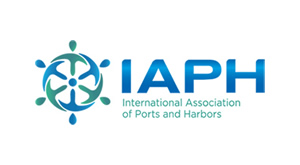 (April 9, 2020) Professor Notteboom and Professor Pallis also compiled the COVID19 Port Economic Impact Barometer, a survey that consists of six key questions and which ports are requested to report on a weekly basis. The purpose of this survey is to find and communicate port responses to COVID-19 and to produce information on useful trends and indicators for both ports and port users regarding vessel call frequency, any restrictions or delays, impact on hinterland cargo transits, storage capacity utilisation, and port worker availability. Key findings of the First Edition of the Port Economic Impact Barometer found that over 30% of the ports report extra restrictions in the last week on all incoming passenger vessels compared to 16% for all container vessels and 14% for all other cargo vessels. To learn more about the fist edition's key findings, click here.
(April 9, 2020) Professor Notteboom and Professor Pallis also compiled the COVID19 Port Economic Impact Barometer, a survey that consists of six key questions and which ports are requested to report on a weekly basis. The purpose of this survey is to find and communicate port responses to COVID-19 and to produce information on useful trends and indicators for both ports and port users regarding vessel call frequency, any restrictions or delays, impact on hinterland cargo transits, storage capacity utilisation, and port worker availability. Key findings of the First Edition of the Port Economic Impact Barometer found that over 30% of the ports report extra restrictions in the last week on all incoming passenger vessels compared to 16% for all container vessels and 14% for all other cargo vessels. To learn more about the fist edition's key findings, click here.
(April 16, 2020) The survey results of the Second COVID19 Port Economic Impact Barometer show that the COVID19 crisis has resulted in over 30% of ports reporting an increase in utilisation of warehousing and distribution facilities in the last week for foodstuffs and medical supplies, whilst other ports report both over- and under-utilisation of their storage facilities, depending on cargo type. To learn more about the key findings of the second edition of the survey, click here.
(April 24, 2020) To learn more about the key findings of the Third COVID19 Port Economic Impact Barometer, click here.
(May 1, 2020) The results of the Fourth COVID19 Port Economic Impact Barometer, report stabilization and slight improvements. To learn more about the key findings of the fourth edition of the survey here.
(May 8, 2020) The COVID19 Port Economic Impact Barometer for Week 19, shows that European ports were more affected by reduced calls from cargo ships than other world regions. To learn more about the key findings of the fifth edition of the survey, click here.
(June 8, 2020) The COVID19 Port Economic Impact Barometer for weeks 22 and 23, reports of more high-frequency feeder services to regional ports, whilst many passenger vessel calls remain scrapped. To learn more about the key findings, click here.
(June 22, 2020) The Ninth COVID19 Port Economic Impact Barometer, shows that European ports were more affected by reduced calls from cargo ships than other world regions. To learn more about the key findings of the ninth edition of the survey, click here.
IAPH - Task Force on COVID-19
 (April 2, 2020) In 2017, the International Association of Ports and Terminals (IAPH), CIP Associate Member, created the World Ports Sustainability Program (WPSP), an initiative aligned with the UN Sustainable Development Goals, in order to assist ports around the world to improve and coordinate their future sustainability efforts, as well as foster international cooperation with partners in the supply chain in their response to challenges at global, regional and local levels.
(April 2, 2020) In 2017, the International Association of Ports and Terminals (IAPH), CIP Associate Member, created the World Ports Sustainability Program (WPSP), an initiative aligned with the UN Sustainable Development Goals, in order to assist ports around the world to improve and coordinate their future sustainability efforts, as well as foster international cooperation with partners in the supply chain in their response to challenges at global, regional and local levels.
In the wake of the COVID-19 crisis, WSPS established a pandemic-focused Task Force to address concerns for IAPH members and other stakeholders in the port sector. The Task Force is led by Tessa Major, IAPH Vice-President for Central and South America and Director of International Business and Innovation at the Port of Açu (Brazil). The team is made up of top-level experts who, based on their knowledge and experience, will guide the sector through this unprecedented challenge. Likewise, there are port economists who will monitor the economic effects of COVID-19.
Through a specialized portal, information provided by experts from ports such as Açu, Antwerp, Busan, Felixstowe, Guangzhou, London, Los Angeles and Rotterdam, as well as from the consulting firm, Maritime Street, and port economists, Professor Theo Notteboom and Professor Thanos Pallis will be constantly updated. This information will answer the following five frequently asked questions:
- What is the current operational status of ports worldwide?
- Where can I find information as a shipowner on port regulations and restrictions?
- Where do I find operational guidance as a port based on global best practice?
- What support should I as a port request from my government?
- What is the economic impact on the global port sector?
For the latest version of the answers to these questions and more information from the Task Force, see here.
On the other hand, based on information collected and synthesized by the Port of Açu within the Task Force framework, the Guidance on ports’ response to the coronavirus pandemic was developed, in which ports from all over the world participated as well as members of the IAPH, sharing their best practices in handling the challenge that COVID-19 represents. Some of the ports included the Port of Hamburg, Port of Barcelona, Port of Klang, Port of Le Havre, among others.
This Guide is dynamic in nature and will be constantly updated. The first version contains best practices in the categories of operations, and governance and communication. In terms of operations, it includes, among others, home office, organization of operational teams and rotation system, fast lane and continuity of its main port activities. In the governance and communication category, it covers issues such as the creation of committees to mitigate the crisis, communication and dialogue with stakeholders and methodologies for effective and transparent communication.
To consult and share information or clarify doubts please contact COVID-19 Task Force.
IMO Recommendations
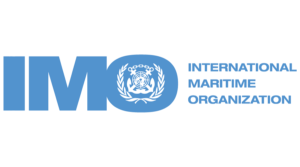 (March 27, 2020) Recognizing the importance of maritime transport services and port operations to deliver essential products, including medical supplies and food, for an effective response against the COVID-19 pandemic, the International Maritime Organization (IMO) published Circular No. 4204 / Add.6 that lists the preliminary recommendations for Governments and relevant national authorities for the facilitation of maritime trade during this pandemic. You can find the Circular here.
(March 27, 2020) Recognizing the importance of maritime transport services and port operations to deliver essential products, including medical supplies and food, for an effective response against the COVID-19 pandemic, the International Maritime Organization (IMO) published Circular No. 4204 / Add.6 that lists the preliminary recommendations for Governments and relevant national authorities for the facilitation of maritime trade during this pandemic. You can find the Circular here.
(April 16, 2020) The Secretary General of the International Maritime Organization (IMO), Kitack Lim and the Secretary General of the World Customs Organization (WCO), Dr. Kunio Mikuriya, issued a statement (Circular No.4204/Add.9) addressed to all States Members of IMO, the United Nations and Specialized Agencies, Intergovernmental Organizations and Non-Governmental Organizations in consultative status with IMO inviting States to maintain the continuity of the global supply chain.
Due to the critical situation caused by COVID-19, there are countries that have been forced to close their ports and deny entry to reduce the spread of the virus. However, these actions have an impact on the economy and health of societies due to the reduction in the flow of all the goods included in the aid goods, as well as the technical support that is essential in these moments of crisis.
For this reason, both Secretaries General invite the communiqué to be shared with Customs Administrations, National Port Authorities and other agencies, in order to act jointly and proactively to facilitate the operation of the global supply chain and reduce impacts of COVID-19. Likewise, the IMO and the WCO have instruments and resources focused on the Coronavirus outbreak, for free consultation and use in the fight against this disease. To read the statement, click here.
(April 17, 2020) To view the IMO press release, "Customs and ports are urged to maintain the flow of critical goods during the pandemic," click here.
- Circular Letter No.4204/Add.32 (25 September 2020) - Coronavirus (COVID-19) – ICAO Harmonized guidance on facilitating passenger flights, including repatriation flights, using public health corridors during the COVID-19 pandemic
- Circular Letter No.4204/Add.31 (17 September 2020) - Coronavirus (COVID-19) – Joint Statement on the contribution of international trade and supply chains to a sustainable socio-economic recovery in COVID-19 times
- Circular Letter No.4204/Add.30 (11 September 2020) - Coronavirus (COVID-19) – Joint Statement calling on all Governments to immediately recognize seafarers as key workers, and to take swift and effective action to eliminate obstacles to crew changes, so as to address the humanitarian crisis faced by the shipping sector, ensure maritime safety and facilitate economic recovery from the COVID-19 pandemic
- Circular Letter No.4204/Add.29 (4 September 2020) - Coronavirus (COVID 19) – Communication from the Secretary-General regarding the crew change crisis
- Circular Letter No.4204/Add.28 (26 August 2020) - Coronavirus (COVID 19) – WHO guidance to promote public health measures on cargo ships and fishing vessels
- Circular Letter No.4204/Add.27 (26 August 2020) - Coronavirus (COVID 19) – Protocols to mitigate the risks of cases on board ships
- Circular Letter No.4204/Add.26 (3 August 2020) - Coronavirus (COVID-19) – Guidance on the gradual and safe resumption of operations of cruise ships in the European Union in relation to the COVID-19 pandemic
- Circular Letter No.4204/Add.25 (24 July 2020) - Coronavirus (COVID-19) – Outcome of surveys by ICS and ITF on health protection measures on board ships in response to the coronavirus (COVID-19) pandemic
- Circular Letter No.4204/Add.24 (13 July 2020) - Coronavirus (COVID-19) – Outcome of the International Maritime Virtual Summit on Crew Changes organized by the United Kingdom
- Circular Letter No.4204/Add.23 (1 July 2020) - Coronavirus (COVID-19) – Recommendations for port and coastal States on the prompt disembarkation of seafarers for medical care ashore during the COVID-19 pandemic
- Circular Letter No.4204/Add.22/Rev.1 (25 June 2020) - Coronavirus (COVID-19) – Singapore Crew Change Guidebook
- Circular Letter No.4204/Add.21 (8 June 2020) - Joint statement IMO-UNCTAD – Call for collaborative action in support of keeping ships moving, ports open and cross-border trade flowing during the COVID-19 pandemic
- Circular Letter No.4204/Add.20 (5 June 2020) - Coronavirus (COVID-19) – Accelerating digitalization of maritime trade and logistics – A call to action
- Circular Letter No.4204/Add.19 (2 June 2020) - Coronavirus (COVID-19) – Guidance for flag States regarding surveys and renewals of certificates during the COVID-19 pandemic
- Circular Letter No.4204/Add.18 (26 May 2020) - Joint Statement IMO-ICAO-ILO on designation of seafarers, marine personnel, fishing vessel personnel, offshore energy sector personnel, aviation personnel, air cargo supply chain personnel and service provider personnel at airports and ports as key workers, and on facilitation of crew changes in ports and airports in the context of the COVID-19 pandemic
- Circular Letter No.4204/Add.17 (21 May 2020) - Coronavirus (COVID 19) – Preparing for post COVID-19 operations: considerations and practicalities for port community systems, single window and other electronic exchange platforms
- Circular Letter No.4204/Add.16 (6 May 2020) - Coronavirus (COVID 19) – COVID-19 related guidelines for ensuring a safe shipboard interface between ship and shore-based personnel
- Circular Letter No.4204/Add.15 (6 May 2020) - Coronavirus (COVID 19) - Personal protective equipment
- Circular Letter No.4204/Add.14 (5 May 2020) - Coronavirus (COVID-19) – Recommended framework of protocols for ensuring safe ship crew changes and travel during the coronavirus (COVID-19) pandemic
- Circular Letter No.4204/Add.13 (5 May 2020) - Coronavirus (COVID-19) – Recommendations for Governments and relevant national authorities on facilitating the movement of offshore energy sector personnel during the COVID-19 pandemic
- Circular Letter No.4204/Add.12/Rev.1 (29 May 2020) - Coronavirus (COVID 19) – Declaration by Port Authorities Roundtable (PAR) members in view of the global COVID-19 situation
To access all circulars, statements and communications issued by the IMO regarding COVID-19, click here.
Maritime Street - Desperate times call for smart measures
 (April 7, 2020) In a global crisis such as the COVID-19 Pandemic it is crucial that measures be taken to reduce its contagion and, consequently, its impact on society.
(April 7, 2020) In a global crisis such as the COVID-19 Pandemic it is crucial that measures be taken to reduce its contagion and, consequently, its impact on society.
Currently, there are regulations where trade and logistics activities require the use of paper, mainly in emerging and developing countries, putting at imminent risk all actors involved in such activities.
Pascal Ollivier, President and Founder of Maritime Street, a consultancy specialized in digital trade logistics, and CIP Strategic Partner, developed four measures for port authorities, maritime authorities, customs authorities and other government and regulatory agencies as part of the IAPH (International Association of Ports and Harbors) Task Force on COVID-19. The following measures are to reduce human contact present in activities, in order to facilitate through digitalization, the continuity of ports and maritime trade.
- All formalities presented by the vessels should only be sent by email when the maritime single window has not been implemented in a country.
- Customs authorities: For countries where regulations still indicate the use of paper documentation, customs brokers, importers or exporters should send the documentation by email when advanced customs management systems and/or single window have not been implemented in a country.
- Other Governmental Agencies: All OGAs should accept certificate, permit and license applications and documentations by email only when Foreign Trade Single Window has not been implemented in a country.
- Beyond regulatory agencies: All private stakeholders involved in trade logistics at seaports should communicate only by email for declaration, authorization and associated documentation with public and private stakeholders for the reporting, movement and clearance of goods when Port Community Systems have not been implemented in a country.
While these are some measures to reduce contact and the risk of contagion, it is important that all parties involved do their best to really protect each other and prevent this crisis from escalating further.
Red Internacional PBIP Mexico and PROBYP - "Recommendations for the Prevention of COVID19 Contagion"
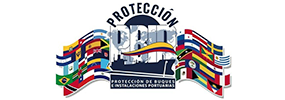
 (April 28, 2020) Taking into account the provisions emanating from the WHO and the local Authorities, the Red Internacional PBIP México requested the experience of PROBYP in the development of preventive procedures in the matter of biological emergency to support associate members and maritime terminals in the different Latin American ports. It is hoped that it can serve as a reference to other terminals and allow appropriate actions to be taken to avoid the loss of human life within their facilities, communities and countries.
(April 28, 2020) Taking into account the provisions emanating from the WHO and the local Authorities, the Red Internacional PBIP México requested the experience of PROBYP in the development of preventive procedures in the matter of biological emergency to support associate members and maritime terminals in the different Latin American ports. It is hoped that it can serve as a reference to other terminals and allow appropriate actions to be taken to avoid the loss of human life within their facilities, communities and countries.
To access to manual "Pandemic Emergency Procedure Template COVID-19," click here.
UNCTAD - Call from the Secretary, Dr. Mukhisa Kituyi
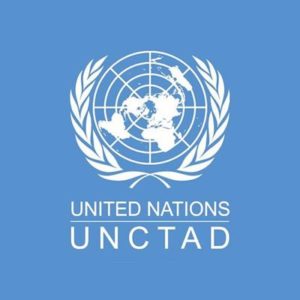 Due to the alarming situation the world is facing because of the COVID-19 pandemic, different measures have been taken that try to reduce its impact not only on the health of societies but on their economies.
Due to the alarming situation the world is facing because of the COVID-19 pandemic, different measures have been taken that try to reduce its impact not only on the health of societies but on their economies.
On March 25, UNCTAD Secretary-General Dr. Mukhisa Kituyi expressed in a statement his support to the International Shipping Chamber's call for action to United Nations agencies of the global maritime transport industry and their critical work in this pandemic. The industry's call urges for continued maritime trade by providing access to commercial ships and facilitating rapid crew changes.
According to UNCTAD, about 80% of global trade is carried out via maritime transport, which shows its importance, on a day-to-day basis, but especially in the current situation the world is facing. It is not only the transport of manufactured goods or raw materials that allow the operations of the industries and companies that provide jobs to the population to stay afloat, but the transport of medical supplies that are essential in these times of crisis. This is why allowing maritime trade and cross-border transport is totally crucial.
On the other hand, Dr. Kituyi mentions transit facilitation, mainly for landlocked countries, who have access to necessary goods such as food and medical supplies through the seaports of neighboring countries. Likewise, the UNCTAD Secretary General encourages support for crews and seafarers, operators and port workers who, due to their work, are susceptible to contracting COVID-19 and are key to the continuity of maritime trade.
Fewer obstacles mean more chances of coping with the COVID-19 outbreak. Now more than ever it is important to respond to this call, take action and keep the world as connected as possible in order to reduce the burden this pandemic imposes on maritime and cross-border trade.
To access the message of the Secretary-General of UNCTAD, continue reading here.
To access PORTS IN THE FIGHT AGAINST COVID-19, which includes best practices, recommendations, crisis protocol and other relevant information shared by the UNCTAD, click here.
More on COVID-19
Survey Results: Ports and Cities during the COVID19 Pandemic in Latin America and the Caribbean
BACKGROUND AND CONTENTS OF THE REPORT By Dr. Sabah Zrari, Universidad de Santiago de Chile August 2020 – The health crisis caused by the spread of Covid-19 has led the ports of Latin America and the Caribbean to implement various protocols for the prevention of contagions in the ports as well as in the city,…
Conference Ports and Covid-19
May 12, 2020 – The conference “Ports and COVID-19,” which was hosted by Duarte and Morales, a consulting boutique specialized in projects of infrastructure, project structure, predictive analytics and project management, achieved a reach of 350 participants from 23 countries around the world. The conference included high high-level speakers such as: Ricardo Sánchez, Senior Economic…
COVID-19 CIP Announcement
CIP Announcement As the world has seemingly come to a halt to fight the spread of COVID-19, the Secretariat of Inter-American Committee on Ports (S/CIP) acknowledges that our National Port Authorities, Associate Members and Strategic Partners in the Port and Maritime Industry, are vital in the response to this unprecedented pandemic. And just like you, the S/CIP…

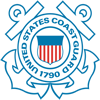
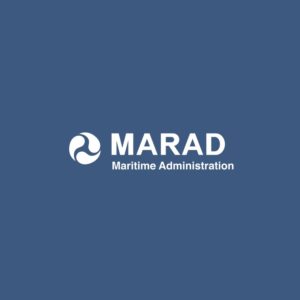 The United States Maritime Administration (MARAD), in its efforts to keep its audience informed about COVID-19, shares updated and reliable information from different sources in order to protect its sailors, who due to their work are prone to contract said disease. This information includes guidance for ships originating in, or with, a stop in the United States; maritime safety information bulletins; tools to assist executives on physical supply chain and cyber security issues, among others.
The United States Maritime Administration (MARAD), in its efforts to keep its audience informed about COVID-19, shares updated and reliable information from different sources in order to protect its sailors, who due to their work are prone to contract said disease. This information includes guidance for ships originating in, or with, a stop in the United States; maritime safety information bulletins; tools to assist executives on physical supply chain and cyber security issues, among others.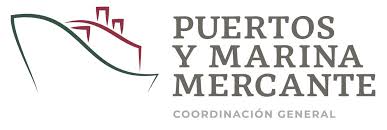 (20 de abril de 2020) The Coordination General of Ports and Merchant Marine communicates that Mexican ports remain open and available, observing the protocols and strict sanitary measures established by the Mexican government, in coordination with state, municipal authorities and relevant actors. The following links stand out:
(20 de abril de 2020) The Coordination General of Ports and Merchant Marine communicates that Mexican ports remain open and available, observing the protocols and strict sanitary measures established by the Mexican government, in coordination with state, municipal authorities and relevant actors. The following links stand out: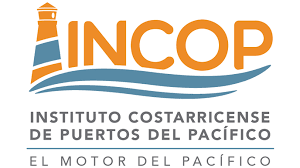 (April 17, 2020) The Costa Rican Institute of Pacific Ports (INCOP for its acronym in Spanish), in response to the request of the Secretariat of the Inter-American Committee on Ports (S/CIP), shared their COVID-19 response protocols to maintain the proper functioning of the ports of Caldera, Golfito, Puntarenas, and Quepos.
(April 17, 2020) The Costa Rican Institute of Pacific Ports (INCOP for its acronym in Spanish), in response to the request of the Secretariat of the Inter-American Committee on Ports (S/CIP), shared their COVID-19 response protocols to maintain the proper functioning of the ports of Caldera, Golfito, Puntarenas, and Quepos.
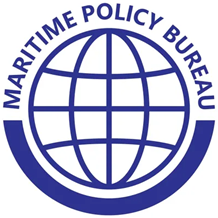 The Maritime Policy Bureau, located in Panama, released an article in which it details the impact that the outbreak of COVID-19 has had on a global level, sharing the following information as a compilation of effects in the maritime-port sector. The virus has caused strong havocs globally on the health and economy of nations. Therefore, the sector has been in the need to work under the guidelines of the WHO in order to reduce the risk of contagion and the paralysis of operations that would affect the supply of food, medicines, raw materials and fuel in the world.
The Maritime Policy Bureau, located in Panama, released an article in which it details the impact that the outbreak of COVID-19 has had on a global level, sharing the following information as a compilation of effects in the maritime-port sector. The virus has caused strong havocs globally on the health and economy of nations. Therefore, the sector has been in the need to work under the guidelines of the WHO in order to reduce the risk of contagion and the paralysis of operations that would affect the supply of food, medicines, raw materials and fuel in the world.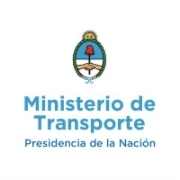
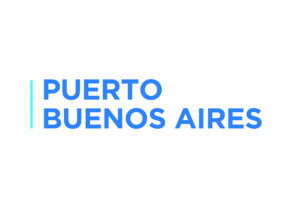 (March 26, 2020) The United Nations United Nations Conference on Trade and Development (UNCTAD) has collected documents from different ports around the world about good practices, recommendations and crisis protocols, including the Official Notice by the Argentine Ministry of Transport.
(March 26, 2020) The United Nations United Nations Conference on Trade and Development (UNCTAD) has collected documents from different ports around the world about good practices, recommendations and crisis protocols, including the Official Notice by the Argentine Ministry of Transport.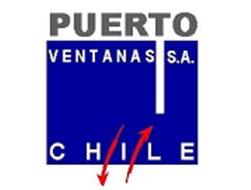
 (July 24, 2020)
(July 24, 2020) 
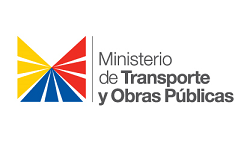 (April 10, 2020) The National Port and Aquatic Transport Administration of Ecuador informed the S/CIP of the decisions taken to face the COVID 19 pandemic and to protect the human life that works in the maritime-port sphere. In accordance with Resolution No. MTOP-DVGT-2020-0001-R of March 15, 2020, the following was established: to prohibit disembarkation of passengers and crew from tourist cruises that arrive in the country and only provide port services without contact with the crew if necessary; submit Ecuadorian crews that have been in foreign ports to the Mandatory Preventive Isolation protocols; promote the use of gloves, masks and disinfectant alcohol; regular disinfection of ships and port terminals in coordination with the Health Authority; and the implementation of a health and disinfection control point, which has sanitary security implements in every ship in ports.
(April 10, 2020) The National Port and Aquatic Transport Administration of Ecuador informed the S/CIP of the decisions taken to face the COVID 19 pandemic and to protect the human life that works in the maritime-port sphere. In accordance with Resolution No. MTOP-DVGT-2020-0001-R of March 15, 2020, the following was established: to prohibit disembarkation of passengers and crew from tourist cruises that arrive in the country and only provide port services without contact with the crew if necessary; submit Ecuadorian crews that have been in foreign ports to the Mandatory Preventive Isolation protocols; promote the use of gloves, masks and disinfectant alcohol; regular disinfection of ships and port terminals in coordination with the Health Authority; and the implementation of a health and disinfection control point, which has sanitary security implements in every ship in ports. On March 23rd, the Ministry of Transport and Communications (MTC), through the National Port Authority (APN) of Peru, informed that despite the fact that the country was in a state of emergency by Supreme Decree, it will continue to provide cargo and merchandise transport services both nationally and internationally.
On March 23rd, the Ministry of Transport and Communications (MTC), through the National Port Authority (APN) of Peru, informed that despite the fact that the country was in a state of emergency by Supreme Decree, it will continue to provide cargo and merchandise transport services both nationally and internationally.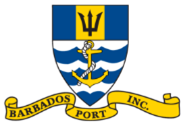 Facing the COVID-19 crisis, Barbados Port Inc. (BPI), carried out various internal measures demonstrating its commitment to mitigating the impact caused by the outbreak of the virus. These measures are applicable to both customers and company personnel.
Facing the COVID-19 crisis, Barbados Port Inc. (BPI), carried out various internal measures demonstrating its commitment to mitigating the impact caused by the outbreak of the virus. These measures are applicable to both customers and company personnel.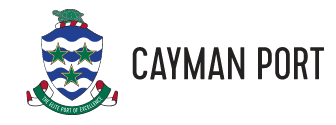 (April 20, 2020) The Cayman Islands Port Authority informed the Secretariat of the Inter-American Committee on Ports (S/CIP) about some of the practices they have followed to deal with the COVID-19 pandemic. These include, but are not limited to: Divided the human resources of each department into two teams that cycle every two weeks; staff is to isolate at home and only travel from home to work and back and to grocery shop as little as needed; staff to bring their own meals from home for the obvious safety and sanitary reasons; request customers/visitors to our facilities to wear some sort of covering over their nose and mouth; security controlling social distancing and customer flow; janitors who disinfect at the exit of one client and before the entry of the next; wall-mount hand sanitizers for all public and staff/provide personal bottles of sanitizers to each staff member; and check/refill all sanitizers daily; provide surgical-type face masks to all personnel; prohibit ship crews access to the dock to avoid contamination by either party; and a 5-level contingency plan to guide the actions and strategies to be taken at each stage of the pandemic.
(April 20, 2020) The Cayman Islands Port Authority informed the Secretariat of the Inter-American Committee on Ports (S/CIP) about some of the practices they have followed to deal with the COVID-19 pandemic. These include, but are not limited to: Divided the human resources of each department into two teams that cycle every two weeks; staff is to isolate at home and only travel from home to work and back and to grocery shop as little as needed; staff to bring their own meals from home for the obvious safety and sanitary reasons; request customers/visitors to our facilities to wear some sort of covering over their nose and mouth; security controlling social distancing and customer flow; janitors who disinfect at the exit of one client and before the entry of the next; wall-mount hand sanitizers for all public and staff/provide personal bottles of sanitizers to each staff member; and check/refill all sanitizers daily; provide surgical-type face masks to all personnel; prohibit ship crews access to the dock to avoid contamination by either party; and a 5-level contingency plan to guide the actions and strategies to be taken at each stage of the pandemic.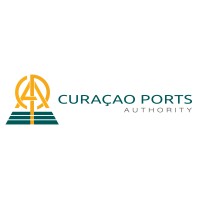 (April 21, 2020) The S/CIP received from the Port Authority of Curaçao some of the practices they are following with respect to COVID-19 sanitary measures and guidelines/protocols. In summary, these include: To the extent possible, staff should work from home to limit contact; Visits to the facilities have been stopped and videoconferences are used for all meetings; Cash payments are not accepted, replaced by online banking transactions; the operating crew is divided into groups whenever possible; Sanitation schedules have been established for office areas, equipment, and between shift changes; disinfectants are placed around the facility and personnel on the move receive disinfectants; protocols have been established to facilitate operational social distancing (e.g. no signing of Pilot Service Report by Captain); Pre-arrival health declaration form is required for service request; the crew cannot disembark; awareness sessions are held to ensure protocol is followed; and a contingency plan has been established to guarantee business continuity.
(April 21, 2020) The S/CIP received from the Port Authority of Curaçao some of the practices they are following with respect to COVID-19 sanitary measures and guidelines/protocols. In summary, these include: To the extent possible, staff should work from home to limit contact; Visits to the facilities have been stopped and videoconferences are used for all meetings; Cash payments are not accepted, replaced by online banking transactions; the operating crew is divided into groups whenever possible; Sanitation schedules have been established for office areas, equipment, and between shift changes; disinfectants are placed around the facility and personnel on the move receive disinfectants; protocols have been established to facilitate operational social distancing (e.g. no signing of Pilot Service Report by Captain); Pre-arrival health declaration form is required for service request; the crew cannot disembark; awareness sessions are held to ensure protocol is followed; and a contingency plan has been established to guarantee business continuity. (April 17, 2020) In response to the Coronavirus phenomenon (COVID-19), the Port Authority of Jamaica (PAJ) has proactively introduced additional safety measures and systems to ensure the protection of employees, stakeholders and users of the seaports in general. The PAJ continues to be vigilant and unyielding in its efforts to prevent the spread of any communicable disease while it consistently communicates with and sensitizes its stakeholders and the public on initiatives being introduced for their protection as well as to enhance safety systems at Jamaica’s seaports. These supplemental safety measures and protocols aim to mitigate a widespread coastal outbreak and facilitate plans designed to contain and reduce the adverse impacts of the Coronavirus in Jamaica.
(April 17, 2020) In response to the Coronavirus phenomenon (COVID-19), the Port Authority of Jamaica (PAJ) has proactively introduced additional safety measures and systems to ensure the protection of employees, stakeholders and users of the seaports in general. The PAJ continues to be vigilant and unyielding in its efforts to prevent the spread of any communicable disease while it consistently communicates with and sensitizes its stakeholders and the public on initiatives being introduced for their protection as well as to enhance safety systems at Jamaica’s seaports. These supplemental safety measures and protocols aim to mitigate a widespread coastal outbreak and facilitate plans designed to contain and reduce the adverse impacts of the Coronavirus in Jamaica. The United Nations Conference on Trade and Development (UNCTAD) has collected documents from different ports around the world on good practices, recommendations and crisis protocols, including that of Puerto Río Haina in the Dominican Republic.
The United Nations Conference on Trade and Development (UNCTAD) has collected documents from different ports around the world on good practices, recommendations and crisis protocols, including that of Puerto Río Haina in the Dominican Republic.

